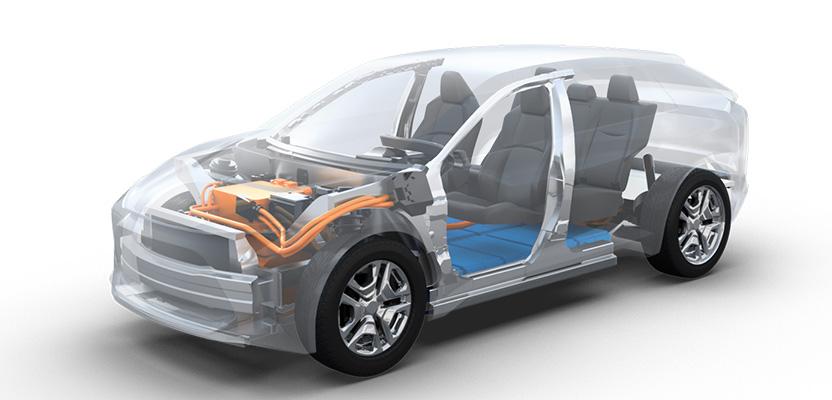Toyota Motor Corporation and Subaru Corporation are to jointly develop a platform dedicated to battery electric vehicles (BEVs) for midsize and large passenger vehicles and to jointly develop a C-segment-class BEV SUV model for sale under each company’s own brand.
The two companies will combine their respective strengths, such as Subaru all-wheel-drive technologies and Toyota vehicle electrification technologies, to create attractive BEVs.
Ever since concluding an agreement on business collaboration in 2005, Toyota and Subaru have been deepening their cooperation in various fields, including development, production, and sales.
Examples include the jointly developed rear-wheel-drive Toyota 86 and Subaru BRZ in 2012 and Subaru’s Crosstrek Hybrid original plug-in hybrid electric vehicle (HEV) in the United States.
The automotive industry is in the midst of a once-in-a-century period of profound transformation.
Starting with responses to the new CASE domains of car connectivity, autonomous or assisted driving, new mobility or car-sharing, and electrified powertrains and components, both Subaru and Toyota are required to conduct technological development across a broader-than-ever spectrum of initiatives.
Building on their collaborative ties, the new agreement especially focuses on the urgent need to respond to CASE’s “E” domain, or electrified powertrains and components.
In addressing vehicle electrification, efficient and speedy development of appropriate products is a must, taking into account the significant variation in the energy situations of each country or region and in government policies, environmental regulations, infrastructure preparation and in market needs for electrified vehicles.
Furthermore, the commercialisation of BEVs requires the use of large-capacity batteries, and, along with the popularisation of BEVs, this means a focus on battery supply.
In addition, stemming from differences in how cars will be used due to maximum cruising ranges and the state of infrastructure construction, a new sales approach will also be needed. These and other issues present a growing number of challenges related to costs, supply, and ways of selling.
To respond speedily to the diversifying needs of these markets and to multiple challenges, both Subaru and Toyota say it is necessary to pursue a business model that goes beyond convention, crossing over industrial boundaries along with various types of other entities that share their aspirations.
As a first step in this direction, while accelerating product development by bringing together technologies that represent each company’s strengths and cooperating where possible, the two companies will jointly develop a BEV-dedicated platform.
The platform will be developed in a way that will make it broadly applicable to multiple vehicle types, including C-segment-class and D-segment-class sedans and SUVs, as well as to efficient development of derivative vehicle models.

